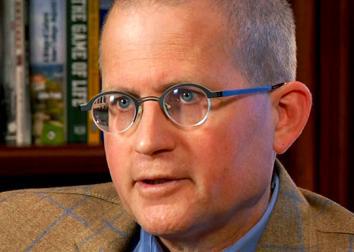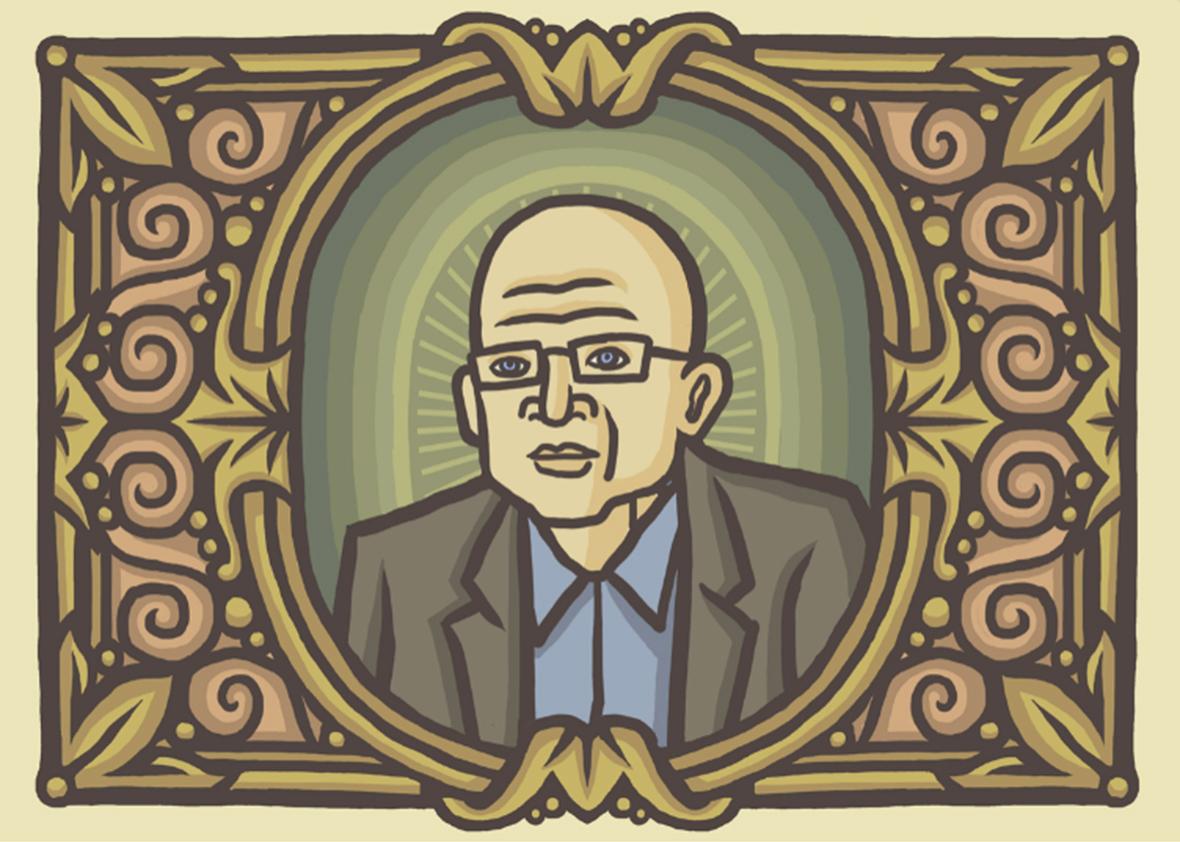“I don’t really believe in Collected Poems,” the American poet and critic Christian Wiman has said. “They’re almost always bad.” Wiman has long believed that real poetry is rare. As editor of the prestigious magazine Poetry, a position he held for 10 years, he faced a slush pile so big it had slopes, a base camp. But he still struggled to source print-worthy poems. “If poetry is so rare in the world, if so much of it is dross, just think how much rarer it must surely be in your (our!) own work,” he writes in a provocative editorial called “In Praise of Rareness.” Wiman’s argument—that a person who truly respects poetry will find most of it lacking—is the sort of good sense that nevertheless triggers some poetry readers, who tend to be aspiring poets themselves. People don’t prefer to acknowledge that the art they dabble in is probably beyond them. (Full disclosure: Wiman took some of my poems for his magazine. But he rejected many, many more.)
Unsurprisingly, Wiman’s high-profile editorship came to overshadow his own poems. So, too, did an essay he wrote about his incurable form of blood cancer and his rediscovery of faith. (The piece went viral in 2007, and led to other essays about God, opening up a new readership for Wiman.) But Wiman’s poems, which have been gathered in his new book Hammer Is the Prayer: Selected Poems, deserve our attention, too. By striving to be clear and memorable, they dare to address the needs of that mythical unicorn, the general reader. They prove, as Wiman’s editorship did, that poetry doesn’t have to be a coterie concern.
Typically, American poets reside in academia. They tend to regress to the mean of the MFA, and mostly address one another. It can seem like a pyramid scheme, made up of creative-writing professors and students who aspire to be creative-writing professors. The byproducts—the poems—are preserved in journals no one reads, pressed into place like brittle leaves. (Occasionally, some hiring committee takes their tally.) First books are published through contests, and subsidized in part by the entry fee coughed up by the poet. Reviews rarely break what amounts to an unspoken peacetime pact: be positive about your colleagues’ work. The net result, suggests Dana Gioia in his landmark 1991 essay “Can Poetry Matter?”, is a surplus of poetry for which there’s little public appetite. “Like subsidized farming that grows food no one wants,” says Gioia, “a poetry industry has been created to serve the interests of the producers and not the consumers.”
Wiman, however, took the road less credentialed. Born in West Texas, he chose travel over grad school and hours of self-assigned reading—five hours a day, as prescribed by Dr. Johnson—over syllabi. He was the sort of young person who hankers after “EXPERIENCE” (caps his), who arranges to absorb his Milton in Guatemala, in a room made of tin and cardboard. “It’s a small miracle that I didn’t take to wearing a cape,” he says of his purple youth.
But in time, Wiman came to distinguish himself as an accomplished poet and critic. In 2003, he assumed the helm of Poetry. The magazine had recently received a historic donation—approximately $200 million from the heiress to the Eli Lilly pharmaceutical fortune. Other poets, with lectern-long CVs, must’ve resented Wiman his incredible opportunity. But the outsider turned out to be the perfect candidate to remake the magazine and expand its audience. Because he respected poetry, he assumed that it could stand up to scrutiny, that it could benefit from some bloodletting. He greenlit young reviewers who weren’t afraid to let the air out of reputations they found inflated, and he commissioned prose from marquee names like Christopher Hitchens and Clive James, who possessed an appeal beyond the poetry world. The critical prose in the magazine’s back pages was filed to a point, trendy jargon track-changed away. One April—that’s National Poetry Month to the initiated—Wiman tacked the headline “National Defibrillation Month” to the cover. Under his watch, circulation tripled from 10,000 to 30,000. It was as if Grub Street had grabbed the little mag by the scruff.
Our interest in poetry tends to be palliative; we assume it’s too minor and sickly an art form to give pleasure. (Isn’t that what Game of Thrones or Drake is for?) But Wiman was committed to reaching the dopamine receptors of Poetry’s readers. And it’s this same commitment to pleasure that powers the poetry in Hammer Is the Prayer. Poems like “Hard Night,” “Rhymes for a Watertower,” “From a Window,” “Five Houses Down,” “After the Diagnosis,” “Sitting Down to Breakfast Alone,” “Small Prayer in a Hard Wind,” and “Little Killing Ditty” resist obscurity and insist you get them by heart. They exist out of necessity, not to swell a CV.
They also bypass many of the toxic debates that have paralyzed and polarized the poetry world. Sometimes Wiman composes in rhyme and meter, sometimes free verse. He rejects the idea that a truly modern poetry, one that mirrors our fragmented moment, should come to the reader in shards. Here’s “Poštolka (Prague),” from his second book:
When I was learning words
and you were in the bath
there was a flurry of small birds
and in the aftermath
of all that panicked flight—
as if the red dusk willed
a concentration of its light—
a falcon on the sill.
It scanned the orchard’s bowers,
then pane by pane it eyed
the stories facing ours
but never looked inside.
I called you in to see.
And when you steamed the room
and naked next to me
stood dripping, as a bloom
of blood formed in your cheek
and slowly seemed to melt,
I could almost speak
the love I almost felt.
Wish for something, you said.
A shiver pricked your spine.
The falcon turned its head
and locked its eyes on mine.
For a long moment then
I wished and wished and wished
the moment would not end.
And just like that it vanished.
The sense of impermanence, the speaker’s inability to communicate an emotion, the inscrutability of the natural world—these themes wouldn’t be out of place in the sort of poems that flaunt their modernity, that tend to refuse any kind of formal whalebone. But Wiman’s deceptively retrograde rhyme scheme conspires to move the reader to a conclusion that’s all the more harrowing for being set in sing-song trimeter.
Many of Wiman’s poems are about faith, mortality, and the rural world he sprang from. Like all great poets, he’s in control of his materials and, more importantly, the reader’s experience. He sources the right words to help her spot hitherto unrealized resemblances between unlike things. (This is more fun for the reader than it sounds.) A “storm cloud [is] glut with color like a plum.” A “dark/ doorway” is the “wall’s yawn.” A hole in a cemetery is “like a shadow standing its ground.” A town is “now nothing but a name/ at which some bored boy has taken aim,/ every letter light-pierced and partial.” Then there’s his exquisite rendering of a flock of birds quitting its tree en masse: “I saw a tree inside a tree/ rise kaleidoscopically// as if the leaves had livelier ghosts.” No creative writing workshop has yet to figure out how to equip its tuition-dispensers with the goggles required to glimpse such stuff. Wiman’s original but precise metaphors are acts of vision and discovery.

Screenshot via Religion & Ethics NewsWeekly
Our current epidemic of fashionably opaque poetry can be traced to patient zero T.S. Eliot. It was Old Possum who propagated the notion that “modern poetry is supposed to be difficult.” It’s a dangerous idea that has traveled like a clutch of spores across the decades, settling on radicals and reactionaries alike—from the so-called language poet, who makes a great show of disrupting grammar, to the canon-defending Harold Bloom, who makes a great show of grumbling. (“Authentic American poetry,” declares Bloom, “is necessarily difficult.”) We’re not supposed to believe that language can let the world through. We’re not supposed to believe in the sort of bygone signifiers of authenticity, like “real poetry” and “right words,” with which this essay is cavalierly strewn. Nor are we to believe in the neigh of that one-horned general reader, out there, in the distance.
But Wiman refuses to be difficult and always aims to delight and move us, whoever we are. Only a handful of working American poets—Daniel Brown, A.E. Stallings, David Yezzi, and Kay Ryan come to mind—share his commitment to clarity and his degree of respect for readers. It’s a fragile operation, but these outliers have it figured out: Get the right words into the right order, and you can occasionally float a poem, like a paper plane, through the Derridean dry ice, over demographic niches, and into hearts. You can, as Frost put it, “lodge a few poems where they will be hard to get rid of.” You can make a marginal art form matter.
“[T]here is a kind of faith that a poet had better not lose,” says Wiman, who now teaches at Yale Divinity School. “It is a faith in the mind’s ability to find meaning in a world that exists independently of itself, and a concomitant faith in language to serve as a means of doing so.” Word by word, Wiman makes you a believer.
—
Hammer Is the Prayer: Selected Poems by Christian Wiman. FSG.
Read the rest of the pieces in the Slate Book Review.
